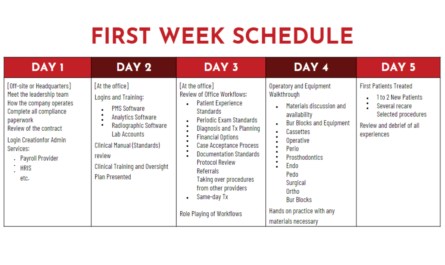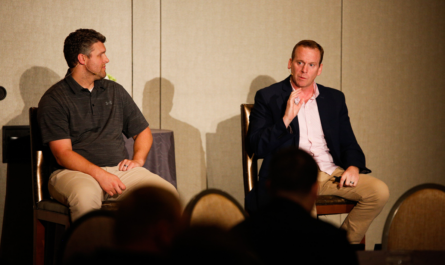Project managers might be one of the best kept secrets in the world of dental service organizations. A lot of other industries understand the importance of project managers and where they fit into a business that’s growing in that world, but they didn’t really exist in the DSO world until three or four years ago. What you may find is that scaling your business creates a series of projects, and you may not have the people on staff to cover these projects. A good project manager will come in to bring order and balance to the chaos of your business. Recently, the DEO spoke with some of the best project managers in the dental industry to discuss the importance, innovations, and value of project management:
- Margaret McGuckin is the Co-Founder and Principal at i3 Ignite.
- Jodi Evans is the COO at Community Dental Partners.
- Brett Evans is the Director of Strategic Planning at Community Dental Partners.
DEO: What is a project manager?
Margaret McGuckin: A project manager is someone who can really understand the relationships, processes, and details required to take an initiative and move it forward in the timelines that it needs to be moved forward. I learned project management from IT people who basically invented agile thinking. Agile thinking is really just a very structured way to approach managing a project. A good project manager will have the skill set to know when to escalate an issue as well as to whom to escalate an issue.
Jodi Evans: We have this triangle that’s broken up into thirds; this is the way we explain it to our team. The top section of the triangle is what we call “make it up,” which is our executive team’s responsibility. The middle section is the “make it real” section, and that final third is the “make it reoccurring.” We learned that we needed a project manager to bridge the gap between “make it real” and “make it reoccurring.” That brought us a lot of momentum, because I wasn’t pinging the reoccurring team (regional managers or practice managers) to take my vision and make it work.
Brett Evans: I think a good project manager protects the company by protecting those who give the vision and protecting those who are expected to implement it by bridging that gap and creating structure out of the vision that a reoccurring team member can digest and implement into their day-to-day job. Also, they should have empathy for the end user of where all this vision and strategy is going and creating solutions that people will be excited about versus resentful about.
DEO: Who do you hire to be a project manager? Do they need a degree or a certain set of skills?
McGuckin: At Clear Choice, the first person I hired had absolutely no background in project management, but she had done event planning management. I think the skills are very similar, and she really had the people skills to make it work. I’ve also had people who were masters in program management work for me. I don’t think you necessarily need a master’s level person. I think you just need someone who can meet your needs at the time and who you believe can really grow with the company as the company grows.
Jodi Evans: I look for someone whose Enneagram’s going to come back that they’re a challenger because I want someone that’s going to tell me that I am screwing up and they’re not going to just tell me “yes” when they should be telling me “no.”
Brett Evans: We have a variety of people on the team. We hired someone as an administrative assistant initially, but she became a project assistant because she showed that she had the right skills for the job. She’s moved and really excelled in that area. I have a project manager who has a background in event management, to Margaret’s point. I have two project managers who are certified like project management professionals through the PMI Institute, who came in with some of their skills already honed. But a lot of the project managers I have are kind of homegrown talent; they have come up through the organization and have taken the initiative to get things done.
McGuckin: I have also found that administrative assistants are a great pool of potential people. I would also throw paralegals in there. Anyone with really strong organizational skills. They think through things in a very process-oriented way, and they think about discovery, and I like both of those attributes.
DEO: Do they need a background in dental?
McGuckin: Not at all. You can learn dental, right? But you have to have the native attributes and you have to really want to do it. No, I don’t think I ever hired anybody from inside dental as a project manager.
Brett Evans: No, dental knowledge is not a requirement in any way.
DEO: What kind of software do you use?
Brett Evans: The best place to start is Google Sheets, or the free version of Trello. We still use Google Sheets for a lot of things. Smartsheet has some cool functionality and is relatively inexpensive. We also recently started using monday.com, but we haven’t completely figured out the full functionality.
Jodi Evans: I would say Google Sheets 100%. I’m an advocate for easy. It’s easy adoption, it’s connected to our email. You don’t really need anything super sophisticated for your project management system. Just work on having a project manager that’s successful.
McGuckin: We started with Microsoft Project, and we went to Google Sheets. I love Trello, actually. We use Trello with some different clients. I’m just as happy to use some plain spreadsheet. You can get super complex project management software, and maybe if you’re working in IT at a really high level, that’s important. But if you’re a good project manager, it’s not necessary.





